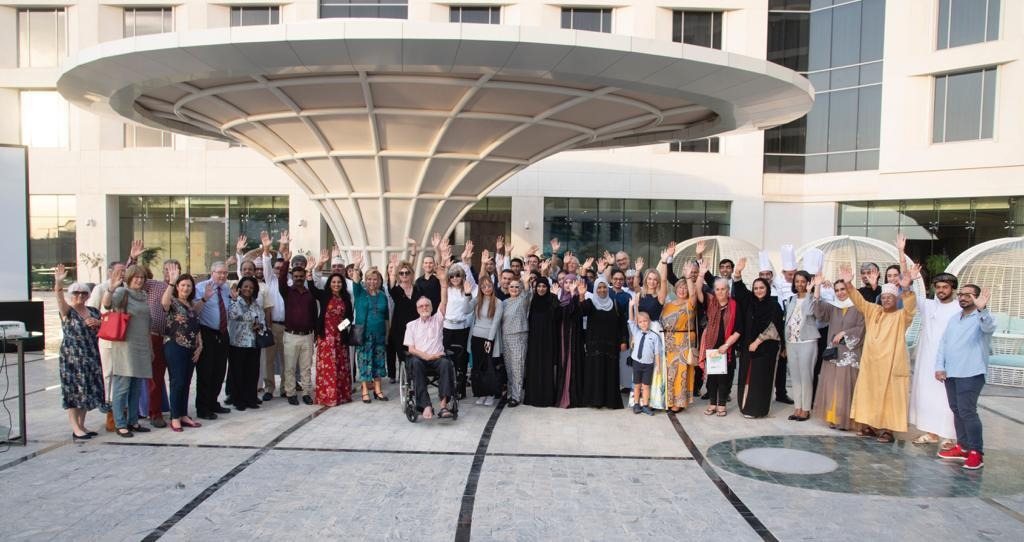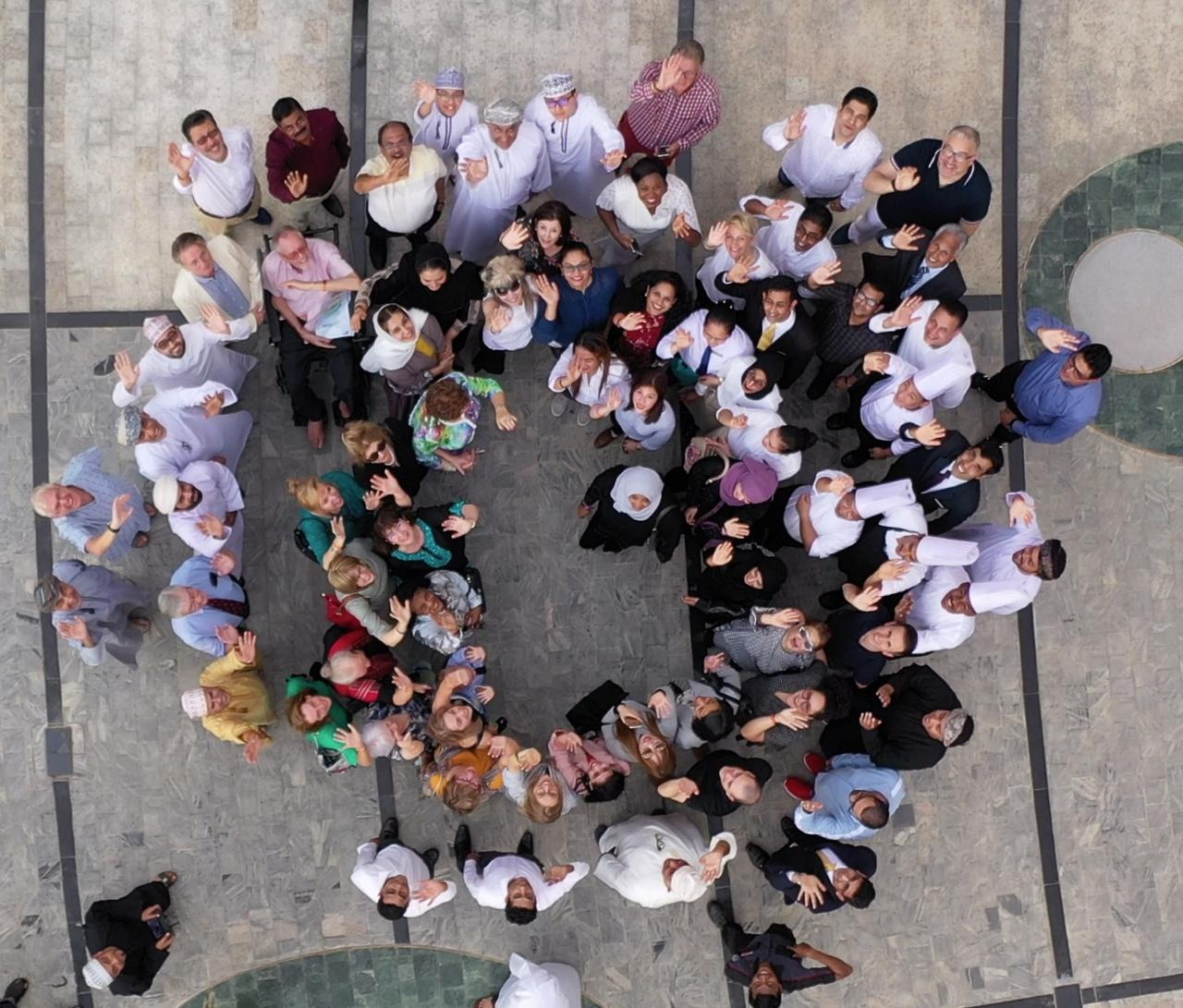Palliative Care in Oman
Maggie Jeans OBE
I came to Oman in 1990 with my husband, Bill Jeans, who had been appointed Professor of Radiology at the new Medical School at Sultan Qaboos University. After many peaceful & contented years, in 2015, my husband was diagnosed with a rare untreatable sarcoma and many months later died peacefully at home in Oman.
The care we received was excellent but often a routine procedure was postponed because a precautionary bed wasn't available. We became aware of the bed blocking issue in Oman which is also common in other parts of the world. We also became aware of the need for more support in the community for those who are terminally ill and became determined to try to address both issues.

A close friend who is an oncologist at Imperial College, London, Professor Jonathan Waxman, offered to help and opened up many doors with his Centre for Palliative Care proposal. I worked in the College of Medicine at SQU as Education Officer when we first arrived and Jonathan suggested that I form a support group of doctors whom I had first known when they were medical students. This was very good advice and I would like to thank this team for all their support. Together, we formed the Oman Palliative Care Association and began to work on raising awareness in the community and to encourage changes in legislation to allow people to be treated in their own homes.
In Oman, palliative care is still in its infancy and consequently many acute hospital beds are blocked by patients who would benefit from this specialised form of care with its many advantages. Unblocking expensive acute beds in hospitals in the Sultanate would enable them to work more efficiently and be more cost effective whilst at the same time improving the quality of life for palliative care patients.

Palliative care is most often associated with terminal cancer but there are many other chronic diseases such as cardiovascular disease, respiratory disease & end stage diabetes, common in Oman, where palliative care is needed. It also has a role to play in the care of the elderly and particularly patients with dementia and Alzheimer's disease. As the ageing population of Oman grows, there will also be an increasing demand for special health care services for senior citizens.
The Oman Cancer Association has funded the training of 180 nurses for palliative care in the community which enables patients to be cared for in their own homes and more training is planned. The Oncology Department at the Royal Hospital is spearheading this community care approach. Hospitals are no place to die.
A Comprehensive Cancer Care Centre is being built at Sultan Qaboos University funded by Royal Court Affairs and this project will also incorporate palliative care. There are also some private sector initiatives in rehabilitation moving towards palliative care, particularly for stroke and accident victims. Private Public Partnership (PPP) will be the likely model for the establishment of other palliative care facilities. With all these initiatives, the time is right to introduce palliative care throughout Oman.
In August 2018, Professor Richard Harding and his team from the Centre for Global Health Palliative Care, Cicely Saunders Institute, King's College London visited Oman and the Grand Hyatt hosted a seminar for stakeholders in the Ballroom which was attended by HE Dr. Ahmed Al Saidi, The Minister of Health who has always been very supportive of this initiative. This launch event received good press and TV coverage and many individuals came forward offering support.
In 2019 we launched the website. The Oman group is now affiliated to the London-based WHPCA - the World Hospice & Palliative Care Alliance and, in 2019, Oman celebrated the annual WHICH international day on 12th October generating good publicity. We hope to be able to do the same this year.
We now have some private rehabilitation care provision in Muscat also accepting terminally ill patients so we're on the way towards a privately funded hospice if a building or land and benefactors can be found. With the new global problem of the COVID-19 pandemic together with the fall in oil price this will be a challenge. We are still working closely with King's College and Oman was one of a handful of countries to be chosen recently to participate in a WHO worldwide study. This ensures that palliative care stays firmly on the agenda with the UK providing support & the perfect role model.
